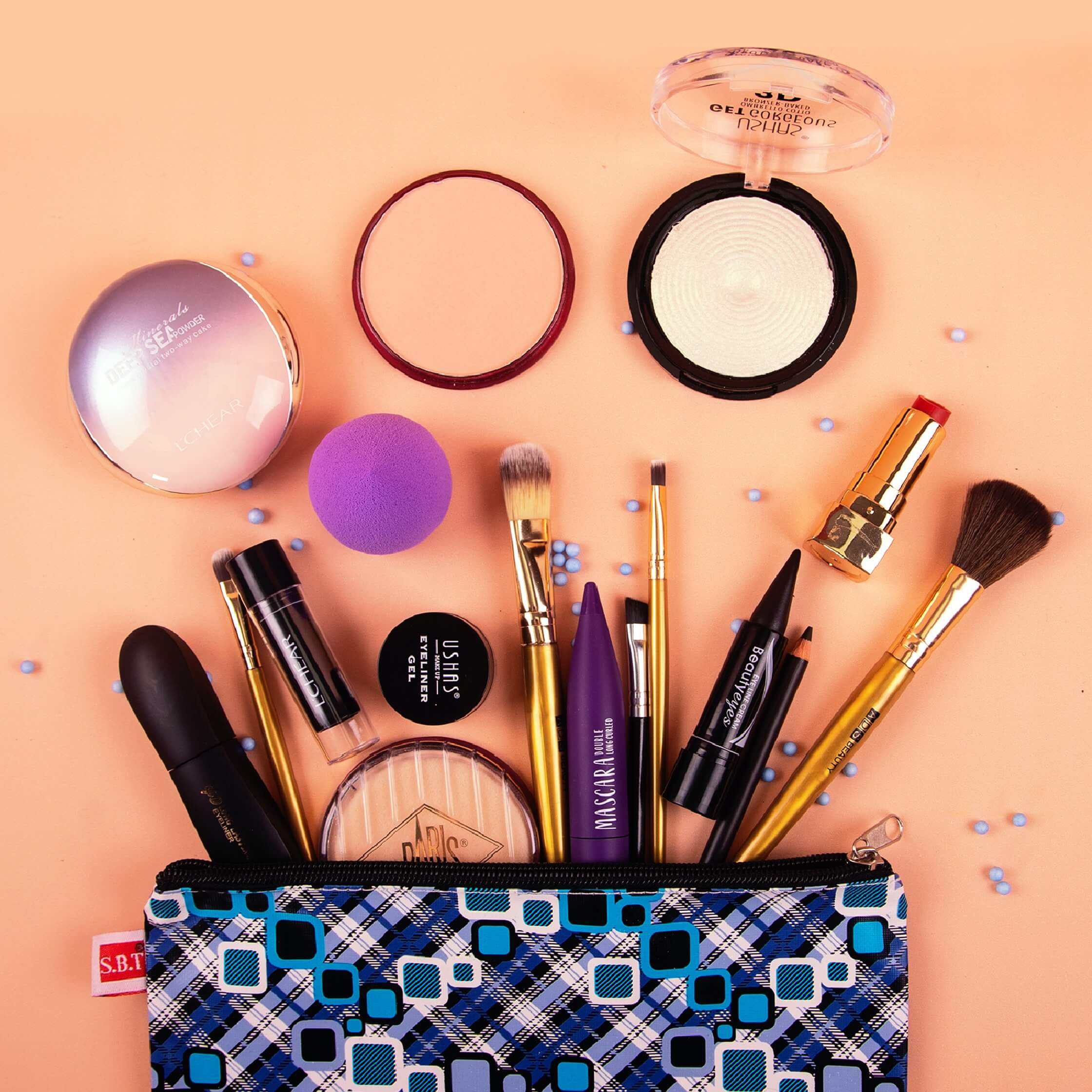There’s something extremely satisfying about having your own cosmetics business.
Maybe it’s the instant authority it gives you as a makeup expert.
Or how popular it makes you when going out with friends.
Or it could just be the amazing discounted makeup!
Personally, I love the fact that I earn a living doing something I have an actual passion for and making people’s lives better as a result!
We help people look their best, and give them confidence as a result. I can’t even count how often people have thanked me for just doing my job. And I didn’t just sell them makeup, skincare products, or hair care products. I helped them achieve the vision that they have of themselves at their best.
Honestly, that right there makes everything worth it. I do have to admit though, getting paid for to do something that I really enjoy is a nice bonus!
Believe me. There’s never a lack of people who need help but are helpless when it comes to makeup.
Start Your Own Cosmetics Business in 12 Steps
The cosmetics industry is growing every single year. In 2015, the beauty industry as a whole brought in over $56.2 billion in the U.S. alone! And makeup cosmetics made up 15% of that – or $8.5 billion – and is expected to rise to $11 billion by 2018.
So if you’re anything like me and really love and appreciate the power of cosmetics, maybe it’s time you invest in yourself and learn how to start a cosmetics business.
By the time you finish reading this post, you’ll understand exactly what you need to do in order to make your makeup dream into a reality!
Step 1: Learn How a Cosmetics Business Works
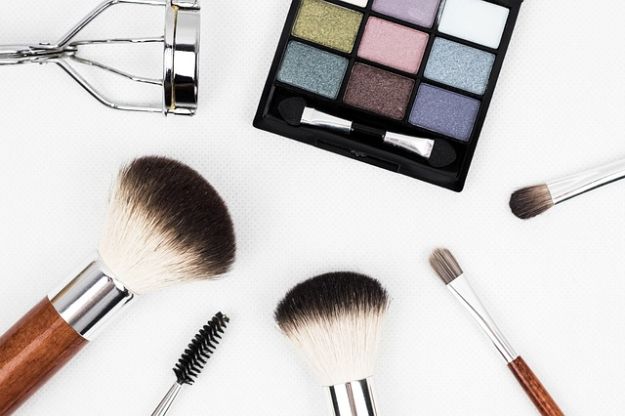
The first step to starting any business is to understand how it works. Fortunately, there are a few ways to do that.
You can start by studying everything you can online. Look up Sephora, MAC, and Estee Lauder, and learn everything you can about them.
Where are they from?
Where do their products come from?
How many employees do they have? What does their distribution channel look like?
Click here to download all of the 31 FAQs of starting a business in this Free Report.
Next, look for the most popular beauty stores in your area and study them, too. Get familiar with their marketing, their staffing, their product selection… basically, your goal is to learn literally everything you can about the most successful cosmetics businesses in your area!
Then – and here’s the fun part – go buy some products from them! Experiment. Play. Have fun and see what kind of magic you can pull off by giving your friends makeovers.
But the absolute best way to learn about the industry is to work in it.
Remember those stores you were studying? Go get a job at one of them! Learn their sales tactics, how they target customers, how they establish their sales projections, how they handle their ordering.
Know who their suppliers are, and what kind of prices they pay.
And learn as much as you can!
If you want to start a cosmetics business from home, then start researching which company you want to work under.
This is a GREAT option for those with limited budgets but huge social networks and people skills!
I’m not ashamed to admit that when I was younger, I was totally a Mary Kay sales rep! And you know what? I did really well there! But today, there are so many options for young entrepreneurial ladies looking to get into the cosmetics industry.
If you’re interested in starting up a cosmetics business from home, here’s a great site that ranks home based cosmetics businesses by user score, startup kit price, base commission, sales method, and product categories.
Once you’ve decided on which model you’re interested in pursuing, whether you want to open a brick and mortar cosmetics store, start a home based cosmetics business, or even create one online, then it’s time to create a plan.
RELATED: Start Your Own Cosmetic Store, A Complete Guide to Help You Run, Start and Manage Your Cosmetics Store
Step 2: Create a Plan
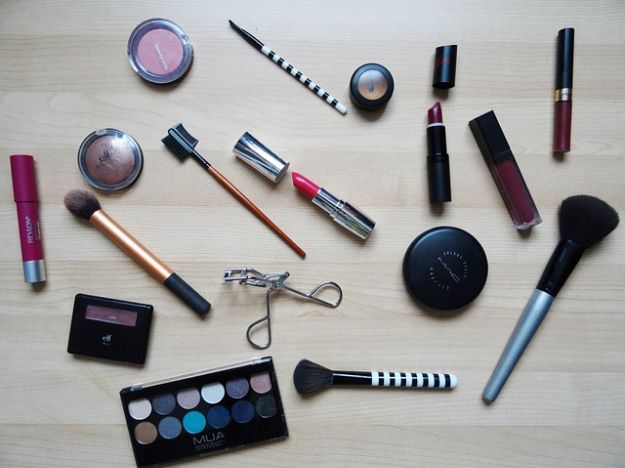
Why do cosmetics businesses fail?
It’s not for lack of customers. The worldwide cosmetics market has grown every single year for the last decade – including following the 2008 recession. In fact, with the exception of 2009 when the industry grew just 1.0%, the growth rate for cosmetics has never dropped below 3%.
That means that each year there are more and more customers wanting and needing cosmetics.
Which means that the real reason cosmetics businesses fail is the same reason as most other businesses – lack of a plan.
Even if you’re starting a cosmetics business from home, a business plan is so important to your success because it’s a roadmap for you to follow.
Creating a business plan is challenging, yes. But it also saves you lots of time, hassle, and money down the road. By making all your decisions ahead of time, you can make sure you’re not missing anything, and really come to understand your business.
Also, if you’re going to open a cosmetics storefront, you’ll need a business plan to show banks or investors for financing.
Your cosmetics store business plan should include an overview of your business, but should also get specific.
- What’s the mission and objectives of your store?
- Who is your target market?
- What is your startup cost?
- How much do you expect to make your first year? Your second year?
- What does your competition look like?
- Do you have a marketing plan?
Your business should guide you in effectively running your business plan after you’ve launched your company, so do not skip over it!
If you’re not sure where to start, Startup Jungle can help you create an expertly organized and professional business plan for your cosmetics business.
Just email bplan@startupjungle.com, and they’ll give you the help you need.
Step 3: Discover Earning Potential
How much money does a cosmetics business make?
Well, that depends.
Different business models have different operating expenses and different earnings potential
If you’re working from home, you’ll pay a set amount for your kit, and then earn a commission based off of each product you sell.
If you’re creating an online store then you’ll earn whatever affiliate commission you agree to with the wholesalers.
And if you’re building an actual brick and mortar store, that’s where you have the highest earning potential. But that’s also where you have the highest setup and operating costs.
That being said, the earning potential is there.
As I said before, the industry is growing. Currently, growth is at about 5% a year. But online beauty sales are growing at 20% every year!
And according to L’Oréal, the term “beauty” is one of the top 3 most popular search topics on Google!
The U.S. market alone brings in more than $56 billion a year. If you’re serious about starting a cosmetics business, the earning potential is absolutely there for the taking!
Step 4: Set a Budget
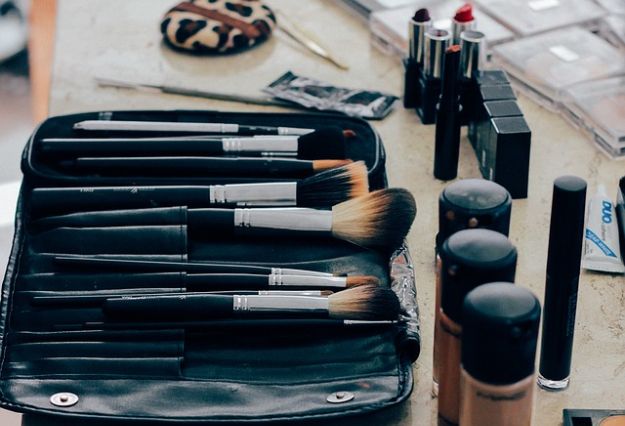
Your budget should be part of your business plan.
You should be able to plan out all startup costs and recurring expenses ahead of time so that you know how much money you have to put back into your business or into your marketing campaign. If you run out of money, you can’t operate your business and have to shut down, making your budget an important tool in your business kit.
How much does it cost to open a cosmetics business?
Well, again that depends on what type of model you run with.
If you’re opening a cosmetics business from home, your costs will be lower. Really, your only required costs will be the kit you buy from the cosmetics company.
But then there are recommended costs. Get yourself a website. And business cards.
Print flyers, if you can.
Invest in stylish, high quality rolling makeup artist travel cases.
Perhaps you’d like to invest in a local magazine and get yourself featured? Or Facebook’s local awareness ads?
If you’re creating a drop shipping company, then you just need to invest in creating a beautiful website and directing online traffic to your site.
As for creating a real life store, that’s a bigger operation with much higher costs.
Some costs to consider when starting a cosmetics business include (in no particular order!):
- Rent
- Business permits
- Insurance
- Employees
- Equipment
- Supplies
You’ll have more needs, but this list should get you started.
To really understand everything, you need to go observe the most successful cosmetics business in your area and mimic whatever you can from their business.
Here’s my example here at Startup Jungle:

Notice a few assumptions that you should take into account when you’re filling out your own projection sheet. If you start to see deficits in your profit, this cash flow worksheet will give you a sense of where you’re not meeting the goals, and what area of the business you’re falling short.

Running a business can be expensive, so here are some tips to keep costs down:
- Make sure your marketing is targeted – if it’s not working, don’t be afraid to change it
- Schedule appropriately – labor is your highest cost, make sure not to overdo it
- Pay attention to the little things – napkins and wet wipes add up, so think about washable towels instead to save money
- Don’t leave the lights on – sounds simple, but utilities get expensive, so make sure you’re conserving wherever you can
Step 5: Decide Which Products/Service to Offer
This is such an exciting piece!
How do you decide what products or services to offer?
Well, again that depends on your business model. But it also depends on you!
What are you really great at? What do you have a passion for?
Basically, you’re asking yourself what is the Unique selling point? What can you offer that nobody else can? Maybe it’s you, maybe it’s your service, maybe it’s your experience…
Figure it out and create a business out of it.
Once you know what you want to sell, you need to find out what your customers want to buy. It’s far more important.
So go talk to friends, family, customers, potential customers, and even strangers on the street. Find out what they’re interested in!
Don’t just say “would you buy this mascara?”
Ask them, “what order would you rank these products” or “what’s your favorite brand of concealer”.
By avoiding yes or no questions, you can give your business a better opportunity to understand what people like best as opposed to just what people say they like. There’s a big difference.
What sells best in the cosmetics industry?
Today, people are looking for sustainable, organic, and anti-aging products.
It’s not just women looking at cosmetics anymore, but men, too.
Men now represent a huge growing market in the industry which should absolutely be focused on.
Popular products include:
- Concealer
- Skin care products
- Mascara
- Lipstick
- Hair care
- Eyeliner
- Mineral cosmetics
- Special effects makeup
There’s no limit to what you can find a market for. As men become more rugged, there’s even the opportunity to sell high-end beard and mustache products.
Don’t be afraid to explore, but remember to check with your potential clients first to understand if there’s a market for what you want to sell.
You can’t sell every product, or you’ll go broke simply by ordering stock. Keep in mind, many big companies have minimum orders, so when you place an order for an item, you’re anticipating being able to move every piece of your order.
When in doubt, go scout what the competition is doing!
Step 6: Decide on a Location
Where should you open a cosmetics business?
If you’re working from home, you want to have an area set up in your home which lets you display your products and host customers and guests.
But if you’re looking for a location for a storefront, you want a location with high foot traffic to increase sales. The best options include malls, kiosks, and high-end plazas.
Ideally, you want to set up your store in affluent areas where disposable income is high, prompting more sales from customers who can afford to look their best. However, if you’re competing on price, then perhaps you want to cater to low-budget neighborhoods as a discount beauty supply store. In this case, you should avoid affluent neighborhoods, but still focus on important factors such as:
- Visibility from the street
- Parking
- Ease of access
- Lighting
- Traffic
Regardless of location, your business is best served by having multiple sales avenues. So you’ll want to explore online sales, as well.
If you’re not sure what to look for, speak to commercial realtors and see if they have any suggestions from past experience.
Step 7: Find Suppliers
What equipment do you need to open a cosmetics store?
That, as you know by now, varies based on what model you go with.
An online store will only need a web designer and a wholesale cosmetics supplier.
As a home-based business, you will have everything you need directly from your company, which is the biggest perk.
But a real world store has more needs. These include:
- Mirrors
- Display cases
- Sponges, brushes, and other supplies
- Makeup products
- Point of sales system
- Furniture
- Art and decorations
- Signage
- Chairs
- Security systems
You may want to explore buying wholesale directly from the cosmetics company. But some other suppliers to explore are:
Research what supplies you’ll need – and where to get them from – ahead of time. This saves time and hassle down the road. Don’t be afraid to shop around for the best prices.
Also, consider auctions or buying slightly used furniture and equipment to save money. Just make sure that everything is in great condition!
Step 8: Promote Your Cosmetics Business
Without customers, your business cannot survive. So it’s critical to promote your cosmetics business in order to bring in new and returning customers.
So how do you promote your business?
Well, there are the traditional, physical ways and newer, targeted digital ways. Both are effective.
Mailbox coupons and door flyers work, but they’re not targeted. So you may be wasting a little bit of money by giving your material to people who don’t need it. You also run the risk of angering people if you leave a flyer on their car or home door.
But it presents an opportunity to get yourself in front of local people who are potential customers. Don’t underestimate that.
You can also stand on a street corner offering samples or coupons to passersby who are your target market.
For more targeted methods, use the internet. Google AdWords allows you to be featured in local searches. Remember, “beauty” is a top 3 Google search term, so that’s a valuable tool. And if you want to really target your audience, use Facebook to differentiate your audience based on interests, age, and location. This is great if you’re looking for high-end buyers because you can target based on their current interests.
If you’re not sure where to start, look at what your competition is doing. If they’re successful, there’s no reason you can’t be, too!
Step 9: Create a Staffing Plan
If you’re working from home, then you can handle doing everything on your own.
But if you’re opening a store, it’s important to have help.
That’s why it’s important to have a hiring plan.
Hiring the wrong person for a position can really hurt your business.
You have to be able to trust your people to run the store even if (especially if) you can’t be there, need to know not only how many people you need on staff, but what type of people and where to find them and can protect yourself by having a potential hire demonstrate their abilities and also by interviewing with questions that will verify cultural fit.
Have a plan not just for who to hire and where to find them, but how to train them and how to staff them. Knowing all of this in advance will prevent you from tearing your hair out trying to organize everything on the fly, but also save you money by keeping you from over staffing.
Step 10: Decide on a Style/Design
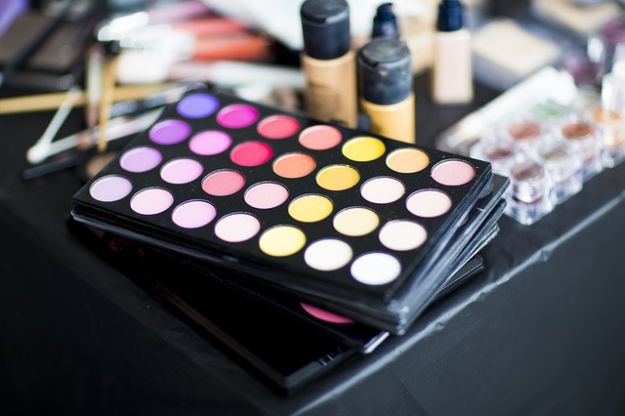
Here’s another area that can be overwhelming.
Your style and design directly influence how customers feel about your business. You want to be warm and welcoming but still express your own flare and passion. Just be careful not to overdo it and risk scaring away customers.
The best way to figure this piece out is to talk to prospective customers. Get feedback from the people who would be frequenting your cosmetics business. Talk to them at existing beauty shops. See what people like and don’t like. If you’re still not sure, talk to some contractors and see what’s most commonly requested of them.
Another option is 99designs.com.
Here, you get designers competing for your prize money. For as little as $99, you get to choose from a large selection of high-quality logo options, giving you flexibility and options, and hopefully providing some inspiration.
And remember, if you’re not sure what to do, don’t be shy about looking for inspiration in other stores or even magazines.
Take your time when choosing your style. Remember, it should express you and your business, so make it appealing!
You’d also need business cards! Here are some designs you can start with:
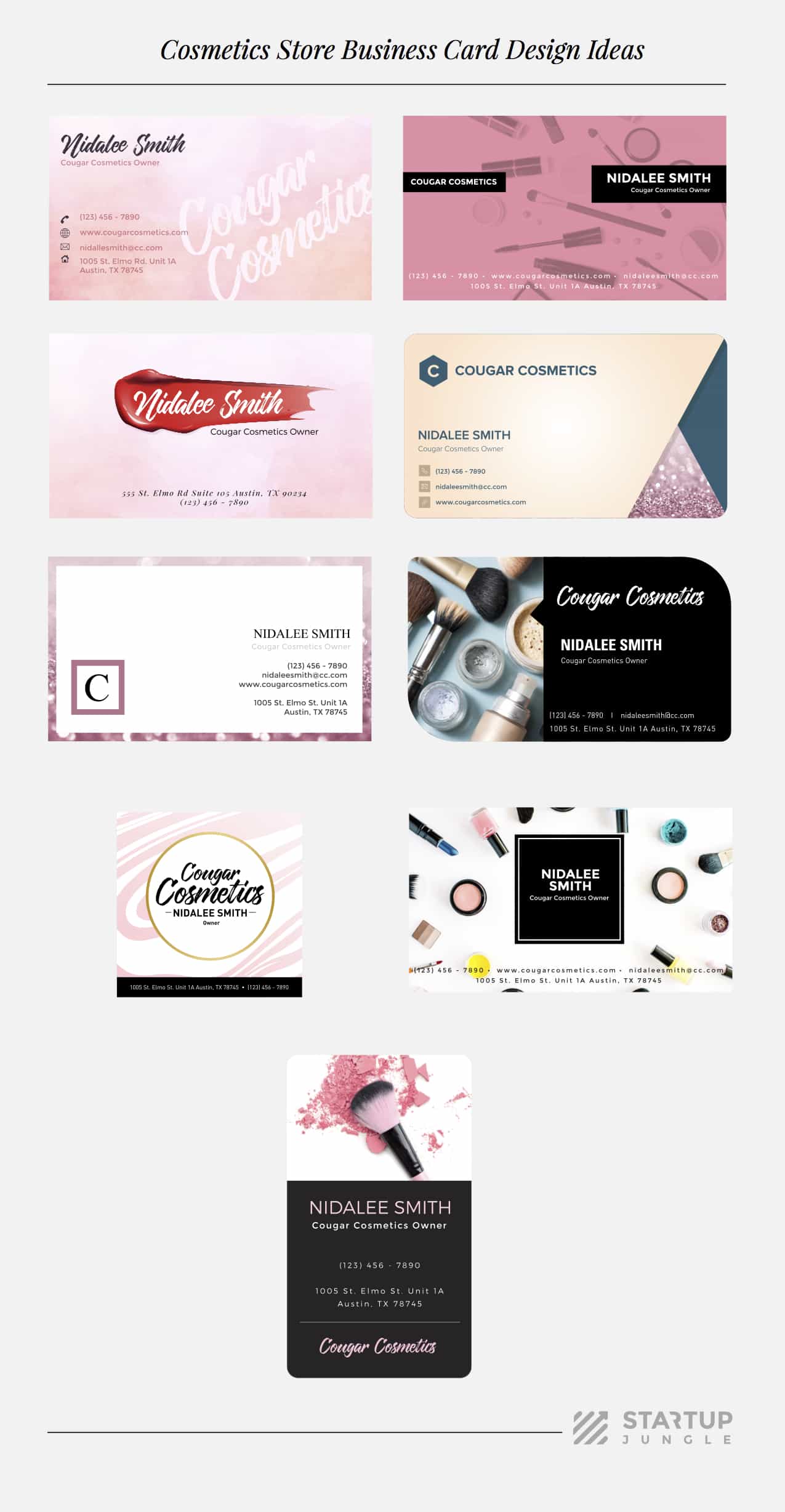
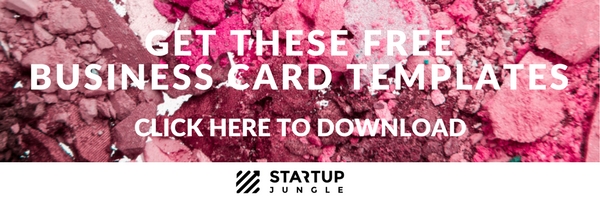
Step 11: Create an Accounting Plan
Having an accounting plan is a must for any business.
As a business, you’ll be an employer. As such, you’d be responsible for payroll, taxes and documenting all your income. Which is why it’s so critical to have every dollar accounted for and everything in order.
Equally important, you’ll be able to project your sales more easily with proper tracking. In addition to knowing if you are on track, it helps you stick to your budget. You’ll also be able to tell if anything is missing from your store, thus, making an accounting plan part of your store’s security measures.
Here’s a few accounting software we have seen:
No one likes to crunch numbers, but that doesn’t change the fact that this is a requirement. If you’re not sure about how to move forward with an accounting plan, consult with a local accountant about either handling your books for you or offering suggestions as to how best to handle your own books.
Step 12: Get Into the Cosmetics or Beauty Community
Becoming involved in the beauty industry community is more beneficial to your business than almost any other activity you can do.
Follow your favorite brands on Instagram.
Get involved on Facebook in groups, fan pages, and communities.
It only takes one retweet, regram, or mention to get noticed by the right people.
While you’re at it, join associations!
Associations give you access to industry veterans, workshops, trade shows, and priceless information about how to best run your business. You’ll learn industry best practices, new strategies, and tips to sell your products more effectively.
An association can be the difference between losing money and making a profit!
Here’s a list of associations you may be interested in:
You can also explore local meetings through meetup.com!
You never know where your big break may come from, so make sure you’re actively engaged in the cosmetics community!
Here’s an infographic with useful information about the Cosmetics industry and some tips on starting a business within it:
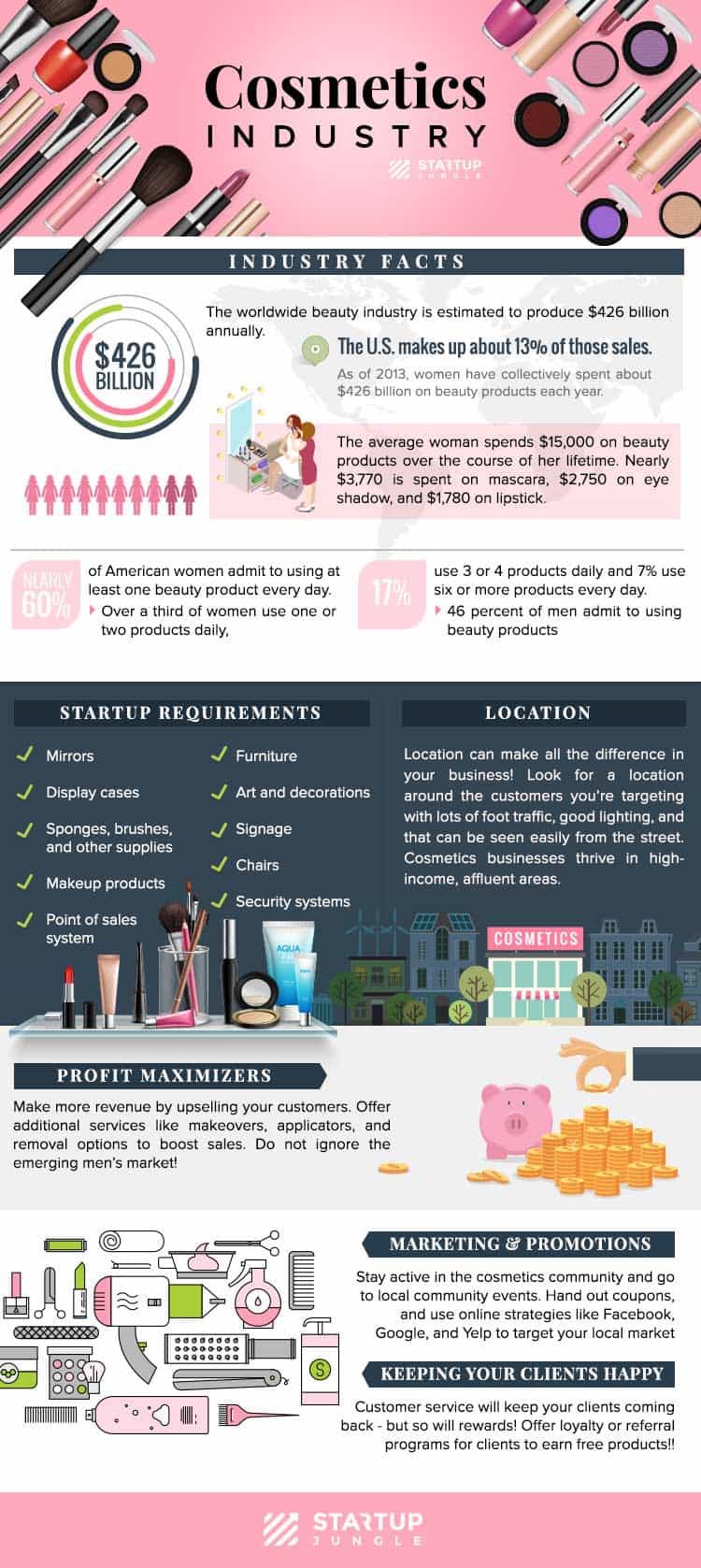
The Bottom Line
Opening (and running) a cosmetics business is a lot of work.
But if you do it right, it’s not only rewarding, it’s a lot of fun.
You get to be your own boss and brighten people’s lives on a daily basis!
On top of that, you’re helping them improve their confidence and making their lives happier!
Hopefully, you put this guide to use.
If this was helpful for you and you want to learn more about opening a cosmetics business, StartupJungle.com has a 21-point checklist for starting your new business. Make sure you download this if you’re serious about getting started.
